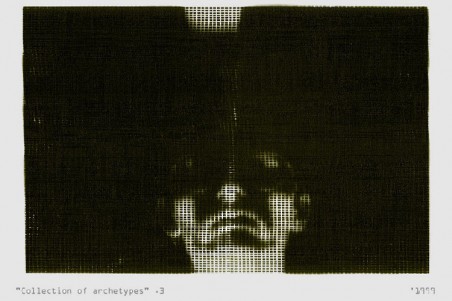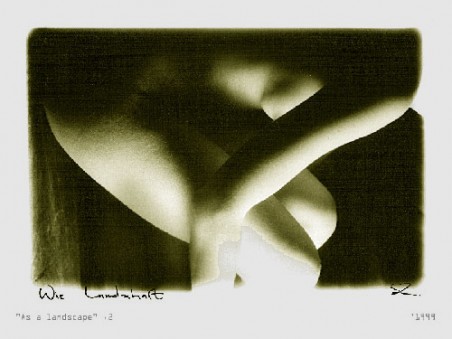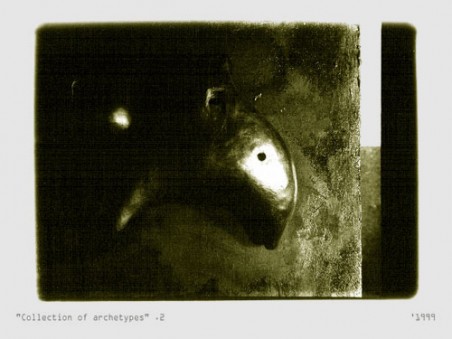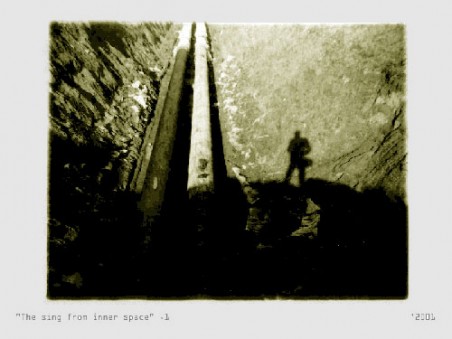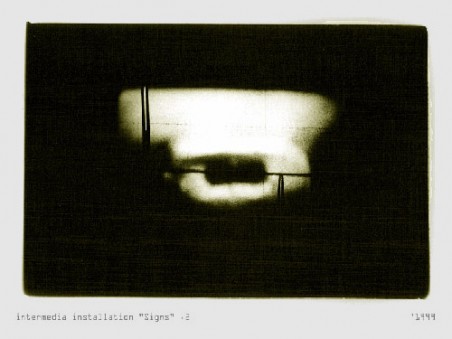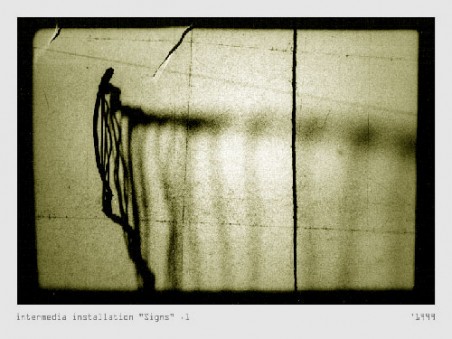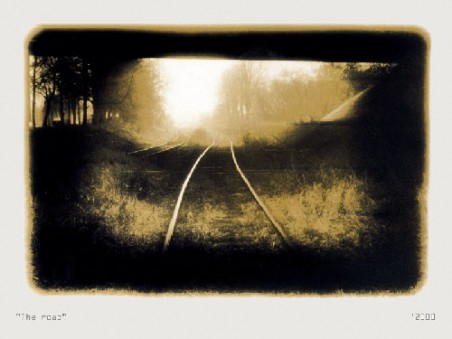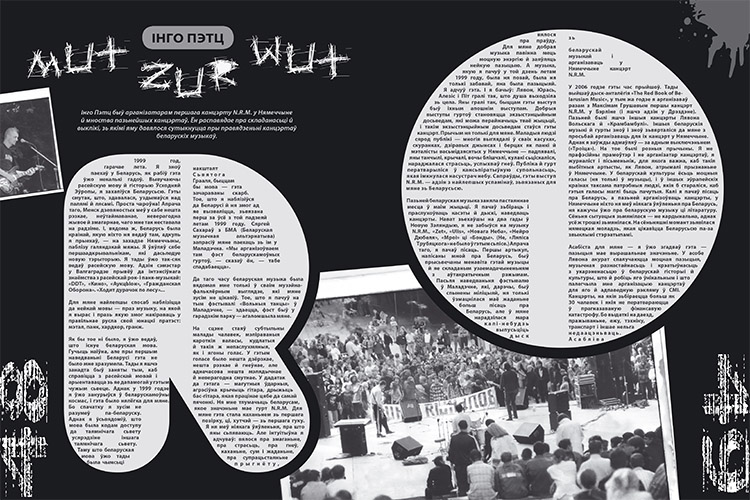Archive! © Published in pARTisan #11’2010
Russian poet Nikolay Nekrasov reportedly said of Dostoevsky’s first novel Poor People, ‘A good novel, but you write not like a Russian’. ‘Why do you only say I am not like a Russian?’, Dostoevsky blurted out.
A Belarusian researcher writing on Dostoevsky and Belarus has a feeling that he is trying to fasten the boat of his Fatherland to the colossus’ foot. Belarus is only present here as an object, without ever manifesting itself as a subject.
If Belarus and a Writer issue has nothing more than a genealogical branch, names of some two or three characters resonant with those well-known in Belarusian history and the Writer’s two or three sayings on the Belarusian people and his own origins from the Lithuanian marshes, than the Belarusian looking glass does not present the image of the Writer but rather his nose and a frock-coat button. He would look like the headless rider, Wells’ invisible man or perhaps Mary who had a little lamb (or, for that matter, Fyodor who had a little bear). Can you imagine a subject matter like Fyodor Had a Little Bear and Belarus?
But, after all, one can write on anything, if possessed by a patriotic feeling of national inferiority! A Belarusian researcher is also eager to extract a tear of his triumph from the nationally indifferent public.
I seem to have crossed out the issue of Dostoevsky and Belarus as a scholarly subject. I think we should focus of something different.
* * *
Once he had thought about it, Dostoevsky always used to say of himself, ‘I am Russian’, thus disclosing his foreignness. Tolstoy or Turgenev would never have said so. Dostoevsky says, ‘I am Russian’ the same way as a Belarusian identifies himself as a Russian. For a Belarusian, the phrase brings together the two opposites of his national indifference and a strong need for a national identity. Dostoevsky is far from indifferent to his characters’ nationality. He is rather an ethnopsychologist than a creator of images. Here we can begin analysing a Belarusian’s and Dostoevsky’s introvert nature, where the outward calm conceals a real tempest within, which can explode in some unmotivated actions.
Is it not emblematic of Dostoevsky’s characters? Are they not the easiest for a Belarusian to understand, in contrast with Tolstoy’s or Flaubert’s clearly literary heroes? Unlike a Russian or a Frenchman, a Belarusian does not need to spend hours modelling Raskolnikov’s, Prince Myshkin’s or Stavroghin’s motives, since he understands them just on a personal level.
There is nothing fanatical or obsessed in Dostoevsky’s human, who just suffers from irrationalism in social life. Occidental or an Oriental will find something positive in irrationalism, such as their national and religious roots and their messianic ambitions, each of them their own way, whereas we are in between…
Rationalisation of Dostoevsky
Fyodor Dostoevsky was an ethnic Belarusian. However, those few quotations from Dostoevsky on the Belarusian people and Lithuanian marshes or the Lithuanian Record Books, registering his ancestors from the 16th century onwards, in no way reveal how genetic memory was reflected in his works. Or our souls, for that matter.
Stating another nation’s genius’s Belarusian roots could suffice us if we had outgrown these roots in the last 150 years. However, the way things are, we are now in a position to better understand Dostoevsky than we would if we had already found an answer to the question of our national origins.
The first thing we have in common with him is the language. The language, which may be non-existent, but…
For all his extraordinary style, Dostoevsky is quite easy to translate into Belarusian. I once used to make notes of Belarusian words in his works… Or maybe Dostoevsky’s style seems so extraordinary just because it is so easy to translate into Belarusian… Yet, he did not know Belarusian, misunderstanding and misinterpreting Belarusian words.
The second thing we have in common with Dostoevsky is that his origins were most clearly manifested in his reflections on national issues. It is here that he can most easily be identified with a modern Belarusian, or rather a modern Belarusian can be identified with him. Dostoevsky more than once called himself Russian, a patriot of Great Russia and a Slavophil. Is it not typical of a modern Belarusian, who without a shadow of a doubt calls himself Russian?
When it comes to Russia, the rational promoter of ethics in Dostoevsky turns into an irrational moraliser. ‘It is to Russia’s benefit if necessary to be ready for clear harm and sacrifice, lest justice should be abused… Russia couldn’t possibly betray the great idea it inherited from the past ages and has followed ever since. (Take notice of this kind of historicism – S. D.) This idea includes reuniting Slavs, but this reuniting does not mean a conquest or violence but is guided by an all-embracing service to the humankind. (Where is logic here? – S. D.) … It is Russia’s self-denying altruism that constitutes all its power and all the future of the Russian mission. It is only regrettable that this power was sometimes directed mistakenly’.
The last sentence represents a glimpse of ratio. Precise and logical in concrete matters, Dostoevsky rarely finishes his extensive emotional ruminations with a sober doubt when speaking on such abstract things as Russia, Europe and humankind.
‘Do not judge the Russian nation by abominable things it so often does, but by the great and holy things it longs for among these abominable things… Do not judge our nation by what it is but by what it desires to be’. Emotions and ratio look like two opposite Dostoevskys. He seems to hold two definite and often conflicting truths, one for Russia and the other for a particular individual.
This is probably what makes Dostoevsky’s paradox, which brings life and spirituality to the writer’s works. While Dostoevsky’s practical mind relies on definite cases, his own experience and even criminology laws, Dostoevsky as an ideologue and Slavophil depends on the public opinion, ideas and the interests of the official government.
Another reason for Dostoevsky’s Slavophil irrationality is that he had only vague knowledge of Russian history, which takes the form of the abovementioned historicism. ‘Studying Russia would take so long that only the fewest know our Russia’.
Dostoevsky as an ideologue feels some kind of contempt for precise scientific facts: ‘The Slav idea in its supreme sense, i.e. above all historical and political explanations, means sacrifice, a need to sacrifice oneself for the brethren and a sense of voluntary obligation for the strongest of Slav nations to stand up for the weak…’
He relies on the spirit and grandeur of the historical interpretation and on the authority of historians, rather than historical facts. In other words, he practises a merely emotional approach, contrary to the one he applies to look into criminal cases, the state system of upbringing and human behaviour, of which he has first-hand experience.
Moreover, Dostoevsky is irrational in discussing national issues in general. Irrationality is his weak point. Try as he may to strengthen it with a bombastic frame, it remains unsteady and unsubstantiated, for all Dostoevsky’s claims to being axiomatic. (‘We, Russians, love what is sacred to us, but only because it is really sacred’) Since all national issues attract him like a magnet, their unsteadiness breaches the monolith of his practical existential conclusions. This is what constitutes Dostoevsky’s paradox. It is at this crack that Dostoevsky places his characters.
Ratio is Dostoevsky himself, his personality and his human essence. The indefinite genes accounted for his strong interest in national issues. This is what makes the subject of Dostoevsky, while Russia became the object of this interest.
Dostoevsky’s emotions should not be trusted unquestioningly. Even less so they should be presented as a dogma, or the absolute truth, as the case is with the famous child’s tear. Elsewhere, Fyodor Dostoevsky will accept and approve of deaths of hundreds of people, provided they are ‘justified’ for example, by heroic considerations.
‘Oh, I am not an idealist’, says Dostoevsky, but some fifty pages further he says, ‘I am an incorrigible idealist’. There is no contradiction here. In all things small, concrete and practical Dostoevsky is by no means an idealist. He is almost a pragmatist here. Yet, in all things great, abstract and non-figurative, he is undoubtedly an idealist. Almost a mystic.
What should be trusted is Dostoevsky’s ratio. Seldom as it occurs in his reflections on the nation, society and state, it is still present sometimes, like in the following conclusion,
‘… If a country has serious land ownership, everything in it will be serious, in all aspects, big and small… At the same time all practices and laws, moral state and even the mentality of nations and finally all rational existence of a national body will take shape only when a country has stable land ownership… The nature of land ownership determines the nature of the nation itself’.
The 20th century proved these words true. I wonder what the nature of the modern Belarusians is like, with their deserted villages, degradedkolkhozes, melioration and radiation… If Dostoevsky had identified himself as a Belarusian, would he have been able to declare in the same lofty manner, ‘I am a Belarusian’? In all probability he wouldn’t have. That is why he would not have identified himself as a Belarusian…
For Dostoevsky the Fatherland and patriotism exist only on an abstract level. Consequently, I can apply his reflections on the Fatherland and patriotism to Belarus and Belarusian patriotism. If these are positive reflections, free from destructive mysticism, we can appropriate Dostoevsky’s experience in our search for identity. It is really much more useful than the fact that Fyodor Dostoevsky was a Belarusian by origin.
Opinions of authors do not always reflect the views of pARTisan. If you note any errors, please contact us right away..




